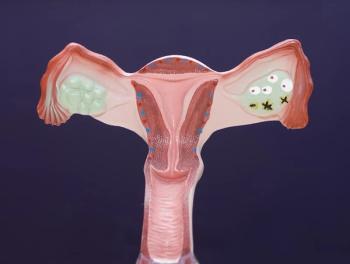
Miami Breast Cancer Conference® Abstracts Supplement
- 40th Annual Miami Breast Cancer Conference® - Abstracts
- Volume 37
- Issue suppl 4
- Pages: 22
21 TIP ELECTRA: An Open- Label, Multicenter, Phase 1b/2 Study of Elacestrant, an Oral Selective Estrogen Receptor Degrader (SERD), in Combination With Abemaciclib in Patients With Brain Metastasis From Estrogen Receptor–Positive (ER+), HER2– Negative (HER2–) Breast Cancer
Background
Currently, there are no approved systemic treatment options specifically for patients with ER+/HER2− breast cancer who have brain metastases. Elacestrant is a nonsteroidal, oral selective estrogen receptor antagonist, commonly referred to as a SERD. Elacestrant demonstrated significantly prolonged progression-free survival (PFS) and a manageable safety profile compared with standard-of-care endocrine therapy in the phase 3 EMERALD trial that enrolled patients with ER+/ HER2– advanced or metastatic breast cancer (mBC) following disease progression on prior endocrine and cyclin-dependent kinase 4/6 inhibitor (CDK4/6i) therapy. A clinical study in healthy postmenopausal women demonstrated the ability of elacestrant to cross the blood-brain barrier. Abemaciclib, a CDK4/6i, has been shown to achieve therapeutic concentrations in brain metastases tissue. Given the lack of current systemic treatments, elacestrant is now being evaluated with abemaciclib in patients with ER+/HER2– breast cancer and brain metastasis.
Materials and Methods
ELECTRA (NCT05386108) is a phase 1b/2, open-label, multicenter study evaluating elacestrant in combination with abemaciclib in pts with brain metastases. Eligible pts are women or men with ER+/HER2− locally advanced or mBC, measurable brain metastasis (phase 1b, the presence of brain metastasis is allowed but not required for eligibility; phase 2, ≥1 active and measurable brain metastasis is required), and ECOG PS ≤2. Pts must have received prior therapy in the metastatic setting, including ≥1 endocrine therapy, ≤2 chemotherapy regimens, and 0-2 prior CDK4/6i (excluding abemaciclib). The primary end point of the phase 1b trial is to determine the recommended phase 2 dose (RP2D). Secondary end points include safety, pharmacokinetics (PK), objective response rate (ORR) per RECIST v1.1, duration of response (DoR), clinical benefit rate (CBR), PFS, and overall survival (OS). The phase 1b portion will evaluate dose-limiting toxicities (DLTs) of the combination during the first cycle (28 days) of treatment in up to three 6-patient cohorts, starting at elacestrant 300 mg daily plus abemaciclib 100 mg twice daily. Once the RP2D has been determined, the randomized phase 2 portion of the study will evaluate the ORR of elacestrant plus abemaciclib in pts with brain metastasis. Secondary end points include intracranial RR, DoR, CBR, PFS, OS, plasma PK, quality of life changes, changes in neurocognitive function, and safety. Exploratory end points include evaluating the relationship between efficacy and pharmacodynamics.
Status
Recruitment for ELECTRA began in 2022, and the dose-finding phase has started.
AFFILIATIONS:
Erika Hamilton,1 Sung-Bae Kim,2 Neelima Vidula,3 Simona Scartoni,4 Tarek Sahmoud,5 Bartomeu Piza Vallespir,4 Kathy Puyana Theall,5 Nassir Habboubi,4,5 Nuhad Ibrahim6
1Sarah Cannon Research Institute/Tennessee Oncology, Nashville, TN.
2Asan Medical Center Seoul, Republic of Korea.
3Harvard Medical School, Massachusetts General, Boston, MA.
4Menarini Group, Florence, Italy.
5Stemline Therapeutics/Menarini Group, New York, NY.
6MD Anderson Cancer Center, Houston, TX.
Articles in this issue
Newsletter
Stay up to date on recent advances in the multidisciplinary approach to cancer.




































